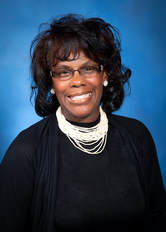 Renee’ Drummond-Brown, is an accomplished poetess with experience in creative writing. She is a graduate of Geneva College of Western Pennsylvania. Renee’ is still in pursuit of excellence towards her mark for higher education. She is working on her sixth book and has numerous works published globally which can be seen in cubm.org/news, KWEE Magazine, Leaves of Ink, Raven Cage Poetry and Prose Ezine, Realistic Poetry International, Scarlet Leaf Publishing House, SickLit Magazine, The Metro Gazette Publishing Company, Inc., Tuck, and Whispers Magazine just to name a few. Civil Rights Activist, Ms. Rutha Mae Harris, Original Freedom Singer of the Civil Rights Movement, was responsible for having Drummond-Brown’s very first poem published in the Metro Gazette Publishing Company, Inc., in Albany, GA. Renee’ also has poetry published in several anthologies and honorable mentions to her credit in various writing outlets. Renee’ won and/or placed in several poetry contests globally and her books are eligible for nomination for a Black Book award in Southampton County Virginia. She was Poet of the Month 2017, Winner in the Our Poetry Archives and prestigious Potpourri Poets/Artists Writing Community in the past year. She has even graced the cover of KWEE Magazine in the month of May, 2016. Her love for creative writing is undoubtedly displayed through her very unique style and her work solidifies her as a force to be reckoned with in the literary world of poetry. Renee’ is inspired by non-other than Dr. Maya Angelou, because of her, Renee’ posits “Still I write, I write, and I’ll write!” BOOK REVIEW |

